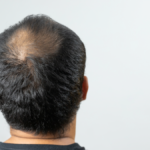In our fast-paced world, many of us grapple with an involuntary habit: Bruxism, more commonly known as teeth grinding and jaw clenching. This condition often emerges during sleep or in moments of intense concentration, leading to a host of discomforts ranging from jaw soreness to severe headaches and neck pain.
Dr Natasha Verma, the founder of Skin NV, shares a crucial insight, “To combat Bruxism effectively, it’s essential to understand and address its root causes, including stress and anxiety.”
The Chronic Nature of Bruxism and Its Impact
Bruxism is more than an occasional reaction to stress or intense focus; it’s a chronic condition with significant health implications. Persistent teeth grinding and jaw clenching can lead to considerable wear and tear on the teeth. This continuous grinding wears down the enamel, leading to tooth sensitivity, fractures, and even tooth loss, necessitating extensive dental interventions over time.
Its impact also extends to the jaw and related muscles. The constant strain can lead to temporomandibular joint disorders (TMJ), characterised by pain and restricted jaw movement. This discomfort often radiates to the neck and head, causing frequent headaches or migraines that can be close to debilitating for one to deal with. “The physical repercussions of chronic Bruxism can be quite severe, affecting not just oral health but also overall wellbeing,” observes Dr Verma.
Bruxism & Its Psychological Dimensions
Bruxism is also closely intertwined with mental health, as heightened stress and anxiety are often primary drivers. For many of us, teeth grinding or jaw clenching is a physical manifestation of psychological stress. This so often creates a vicious cycle, where the discomfort and pain from Bruxism exacerbate stress and anxiety levels, further worsening the condition.
The connection between stress and Bruxism is also particularly evident during periods of deep concentration. Many individuals subconsciously grind their teeth or clench their jaws in response to stress, often during sleep, which can exacerbate the condition without their awareness. The recognition of these triggers is pivotal in developing an effective treatment plan.
“Understanding the psychological underpinnings of Bruxism is so important. It’s not just about managing the physical symptoms but also addressing the stress and anxiety that fuel the condition,” highlights Dr. Verma.
Innovations in Bruxism Treatment
Thankfully, modern treatments for Bruxism have evolved beyond traditional dental solutions. A key element of Skin NV’s innovative treatment for teeth grinding involves the use of neurotoxic proteins. These proteins are administered to target the muscles involved in bruxism specifically. “Our treatment strategy utilises neurotoxic proteins to effectively relax the jaw muscles, thereby addressing the root cause of Bruxism,” says Dr. Verma. This targeted approach not only helps reduce the frequency and intensity of teeth grinding and jaw clenching but also ensures that the natural functionality of the jaw is not compromised.
The diverse sources of Bruxism in everyone also require an incredibly customisable approach. At Skin NV, this is a core belief. During each initial consultation, Dr. Verma comprehensively evaluates the patient’s facial muscles and identifies specific triggers and symptoms. Based on this assessment, a customised treatment plan is developed, which may include a combination of in-clinic treatments and at-home care recommendations.
“Our personalised approach allows us to provide optimal relief from the symptoms while also aiming to prolong the results, ensuring our patients experience long-term freedom from discomfort and stress associated with Bruxism,” she emphasises.
As mentioned earlier, Bruxism is closely linked to stress. Skin NV’s treatment extends beyond merely addressing the physical symptoms. The clinic recognises the significant role stress and anxiety play in exacerbating Bruxism. Thus, part of the treatment process may involve recommendations for stress management techniques, mindfulness practices, and lifestyle adjustments that contribute to the patient’s overall well-being.
Additionally, safety and patient comfort are paramount at Skin NV. The application of the neurotoxic protein treatment is carried out with utmost precision and care under the skilled hands of Dr. Verma. The clinic’s commitment to using state-of-the-art technology and the latest techniques in the field ensures that treatments are effective, minimally invasive, and comfortable for the patient.
Beyond Medical Interventions
Yet, for all the treatments on offer, effective management of Bruxism involves more than just medical or dental interventions; it requires a holistic approach that addresses the condition’s physical and psychological aspects. “Integrating lifestyle modifications is crucial in creating a well-rounded treatment plan for Bruxism,” states Dr. Verma.
This means that we need to incorporate stress management techniques such as relaxation therapies, yoga, or meditation, all of which can significantly reduce the stress that so often triggers Bruxism. Regular physical activity is another key management factor of a comprehensive treatment strategy. Exercise not only helps in overall stress reduction but can also improve sleep quality, which is often affected in individuals with Bruxism.
The Role of Psychological Therapies
For those with more serious mental health concerns that are dealing with Bruxism, psychological factors like anxiety and stress are typically the major contributing factors. In such cases, cognitive-behavioural therapy (CBT) can be particularly effective. CBT helps individuals recognise and change thought patterns and behaviours contributing to their Bruxism. Counselling and therapy sessions provide a safe space for individuals to explore and address the underlying emotional and psychological issues that may be at the root of their condition.
Mindfulness practices have also gained recognition for their effectiveness in managing Bruxism. These practices help individuals become more aware of their stress triggers and jaw-clenching habits, particularly during the day, enabling them to consciously relax their jaw muscles.
In Essence
Bruxism is a complex condition demanding a truly multifaceted treatment approach. By marrying advanced medical interventions with lifestyle modifications and psychological therapies, individuals can experience symptomatic relief and a significant enhancement in their overall quality of life.
Dr. Verma wonderfully concludes, saying, “Our goal here at Skin NV is to provide a treatment plan that offers comprehensive care, addressing both the physical discomfort and the psychological aspects of Bruxism.” This holistic approach shows the importance of considering the entire spectrum of the condition for effective management and long-term well-being.
























